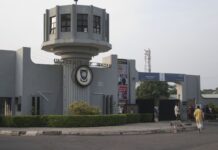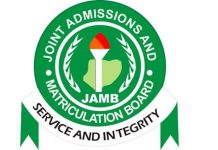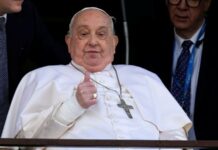Rotimi Fasan
In less than two weeks the All Progressives Congress-led government of President Bola Ahmed Tinubu would mark its mid-term in office. Which is the same thing as saying that the emergence of the winner of the 2027 presidential election is still more than a year away. But there is palpable confusion in the camp of Nigeria’s opposition parties that have all but capitulated and conceded victory in that election to the current president and incumbent party.
The opposition has not found the appropriate way to respond to the victory of Tinubu since the 2023 election. The fact that he won the election against all odds has been deeply confounding to his opponents who continue to flounder in their plans to wrest power from him and the APC.
Following the failed attempts (both legal and extra-legal) to stop him from being sworn into office after he was declared victorious, the opposition has remained uncoordinated in its fight to ensure Tinubu does not win the next election. Their effort is not so much geared towards ensuring he loses the election as it is meant to cut short the life of his government and ensure he does not have the opportunity to complete his first term.
Members of the opposition and pundits sympathetic to their cause have come up with dire predictions concerning why he could not win the 2027 election even as they downplay whatever modest achievements the administration has recorded in two years. Yet every single one of their efforts appears to affirm the opposition’s acceptance of Tinubu’s victory in 2027 as a fait accompli.
My point here is to say that the opposition has been laying the foundation for the inevitability of Tinubu’s victory. Yet, they would be the first to offer reasons why they think they won and he lost the election. They started the year with the disaffected members of their camp from the North crawling out of hibernation with an exaggerated sense of importance and threats of retribution against the government for both real and perceived offences.
The most prominent figure of this band of politicians was Nasir el-Rufai, a former governor of Kaduna State. Even though it was clear he was out to draw blood and achieve maximum damage, he started out slowly and gradually raised the tempo of his activities. Soon he teamed up with former rivals and political enemies like Atiku Abubakar. They met both behind closed doors and in front of the cameras. They spoke of forming grand coalitions. Atiku and el-Rufai pretended to be good friends but tactfully avoided making a clear statement about the political platform (read party) they would float their coalition on.
Atiku’s Peoples Democratic Party has been mired in conflict since the former vice president emerged the flag bearer of the party in the last election.
But it was clear Atiku was not about leaving the platform for anywhere as he cleverly steered those converging around him in the direction of the party. El-Rufai who everyone knew pride and pragmatic considerations would not allow to return to the PDP quietly announced he has chosen to berth in the Social Democratic Party. For a short while there was a buzz about that and the man at the centre of it all basked in the sun. Things around him have since settled down to the silence and disorientation that has characterised opposition politics before his seven-day wonder.
Hakeem Baba-Ahmed has sustained his criticism of Tinubu. Despite his threats of Northern retribution, he is apparently coming to the realisation that his criticism will not necessarily determine the direction of the next election and now moderating the initial arrogance of his language.
The most devastating evidence of the opposition’s lack of coordination came when members of Atiku’s own PDP in Delta State, including the governor, Sheriff Oborevwori and his predecessor, mentor and Atiku’s own running mate in the 2023 election, Ifeanyi Okowa, triggered an exodus of members from the party. Not even the most perceptive supporter of the PDP saw that coming. To rub it all in for members of the PDP, Okowa added the unnecessary insult that he regretted running with Atiku against the better judgement of his own Delta people.
Now, the PDP is a shadow of its former self and it is doubtful if the party would accommodate Atiku’s ambition in any form. Before the latest coup de grace, he had been told by PDP governors that they would follow no trail blazed by Atiku.
If that message was too subtle for Atiku to comprehend, the mass defection from the Delta State’s PDP, not forgetting earlier high stake defections in the National Assembly and other states, should make the message clear and unmistakable. The deck is being cleared for a Tinubu clearance of the stakes, possibly a landslide, in the 2027 election. And the most potent response of the opposition that is facilitating this by its hasty acceptance of defeat is to raise higher the decibels of their lament that their camp is being decimated by the APC and President Tinubu in a clear move towards a one-party state. They fail to see the irony of their self-indicting claim which is the acceptance of their own lack of discipline for being vendable politicians. They talk as if it’s the duty of the ruling government to help fix their parties.
From PDP to Labour Party and the others, the Nigerian opposition has lost what it takes to be an effective bulwark against the dominance of the APC. While the PDP is a house divided against itself, the LP is not in a better shape. The only parties not torn down the middle are the minor ones that are not in the position to pose a threat to the ruling government.
While Atiku Abubakar doesn’t know in what direction to turn, Peter Obi continues to hop on any and every possible point of attack against the government, no matter how trivial or inconsequential is the person making the point. Pat Utomi’s shadow government is at best another politcal gimmick and the bottom is coming off the opposition’s latest gambit to recruit Goodluck Jonathan for the 2027 election.
Mrs. Patience Jonathan’s has given that a lie with her pledge to support the Tinubu administration. She might as well be speaking for her husband. Where can Atiku and Obi turn, what can they do with many governors, including those in rival parties, pledging to work with Tinubu?
The man is not even talking yet. He’s cleared the country’s debt to the IMF, his tax reforms bills have been passed and the states are poised for local police system that could turn around for the good of our insecurity story. Can the opposition find its sense of direction?



























































